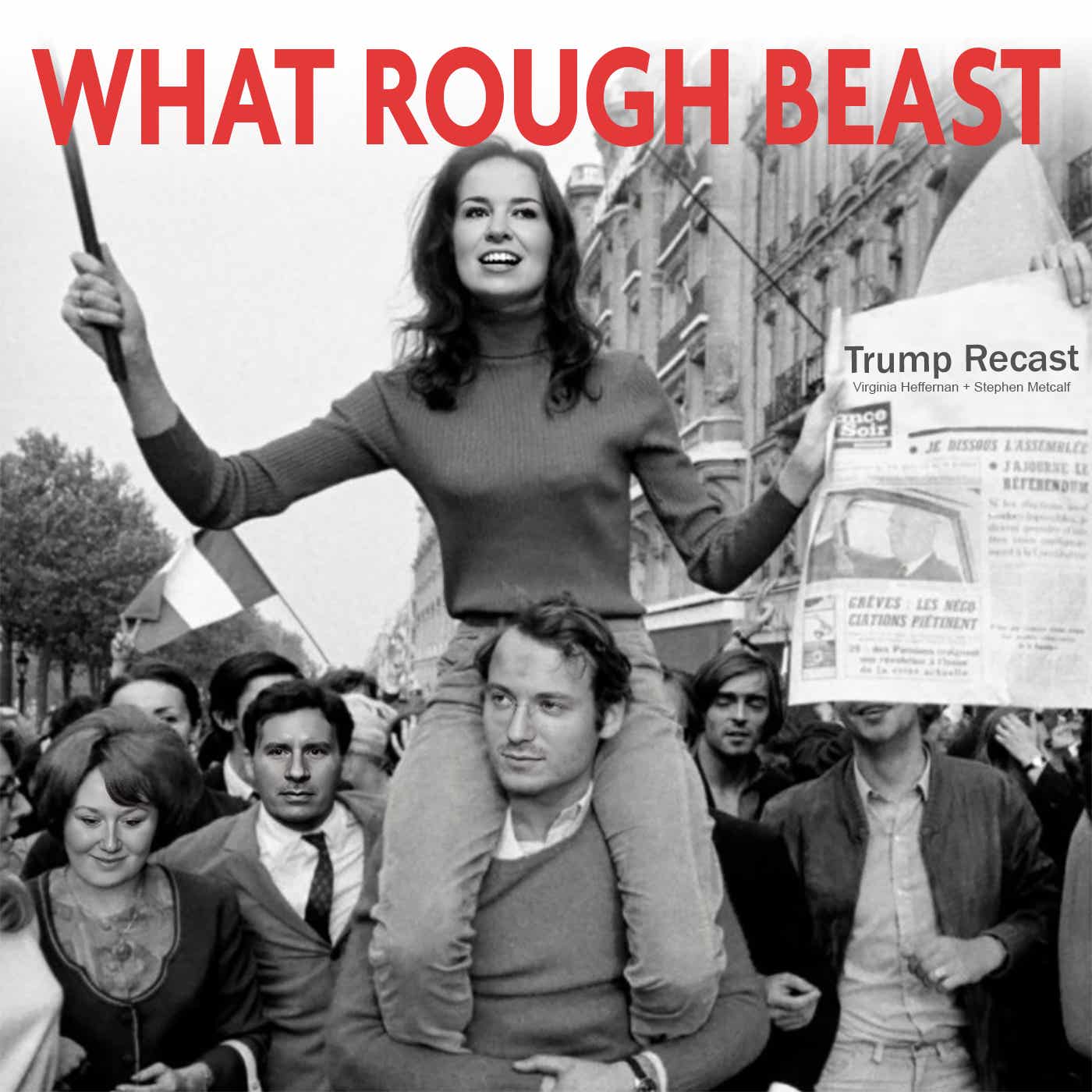What Rough Beast

What Rough Beast
Podcast Description
What Rough Beast, hosted by Virginia Heffernan (Wired, Trumpcast) and Stephen Metcalf (Slate, Culture Gabfest) is a podcast where we bear witness to America’s demise, and ask what might be built from the rubble. The sludge. The sparkly phosphorescent faerie dust of recombinant DNA.
It is a spiritual successor to Trumpcast, but with a radical reimagining. Instead of focusing on opposing Trump or trusting institutions, this podcast explores imaginative, unexpected responses to our current political moment. The show takes inspiration from the '68ers' motto "all power to the imagination" and seeks unconventional solutions beyond traditional political frameworks. virginiaheffernan.substack.com
Podcast Insights
Content Themes
The podcast explores themes around political imagination, social change, and unconventional solutions. Key topics include the transformation of the Supreme Court, internal exile as a response to political despair, and the role of climate activism in democracy. Recent episodes have covered specific examples like the impact of the Federalist Society on legal rulings and discussions about radical approaches to activism.

What Rough Beast, hosted by Virginia Heffernan (Wired, Trumpcast) and Stephen Metcalf (Slate, Culture Gabfest) is a podcast where we bear witness to America’s demise, and ask what might be built from the rubble. The sludge. The sparkly phosphorescent faerie dust of recombinant DNA.
It is a spiritual successor to Trumpcast, but with a radical reimagining. Instead of focusing on opposing Trump or trusting institutions, this podcast explores imaginative, unexpected responses to our current political moment. The show takes inspiration from the ’68ers’ motto “all power to the imagination” and seeks unconventional solutions beyond traditional political frameworks.
This week, on the occasion of the five-year anniversary of the January 6 attack on the U.S. Capitol, I want to share a couple of conversations I had on the first anniversary of the insurrection with Reps. Jamie Raskin and Hakeem Jeffries, and Jamelle Bouie.
What you’ll hear are vivid accounts of that day, and you’ll hear about what this seemed to mean for who we are as a country, and where we were (and are) headed.
What Rough Beast is a reader-supported publication. To receive new posts and support my work, consider becoming a free or paid subscriber.
This is a public episode. If you’d like to discuss this with other subscribers or get access to bonus episodes, visit virginiaheffernan.substack.com/subscribe

Disclaimer
This podcast’s information is provided for general reference and was obtained from publicly accessible sources. The Podcast Collaborative neither produces nor verifies the content, accuracy, or suitability of this podcast. Views and opinions belong solely to the podcast creators and guests.
For a complete disclaimer, please see our Full Disclaimer on the archive page. The Podcast Collaborative bears no responsibility for the podcast’s themes, language, or overall content. Listener discretion is advised. Read our Terms of Use and Privacy Policy for more details.